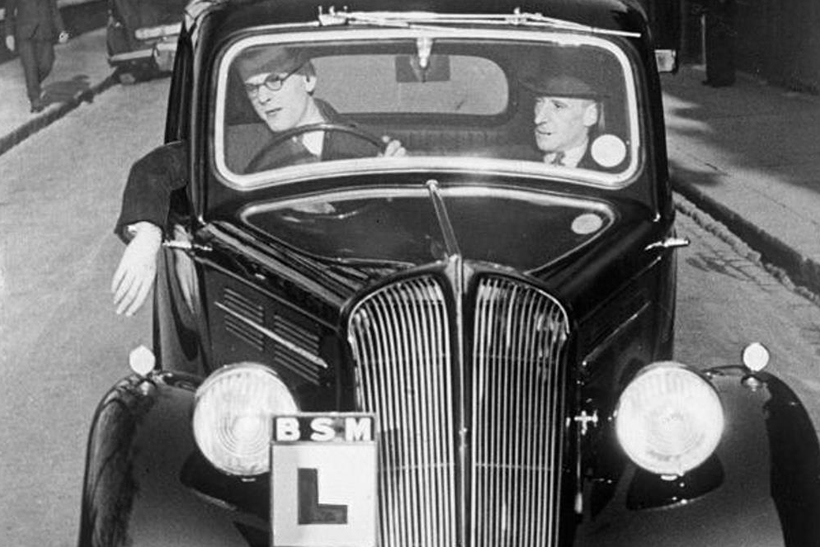If government proposals come to fruition, Britain is facing “the biggest shake up of the driving test in a generation”, with an array of ideas that could even affect how the test is paid for – 80 years after the very first driving test took place. A consultation released last month proposes the introduction of a ‘cashback’ incentive scheme for all learner drivers applying to take their tests.
The idea behind the payment incentive is to ensure that pupils only take their tests when they are fully ready, to help alleviate the high failure rate currently affecting first-timers. At present just 21 per cent of driving tests result in a first-time pass, with the vast majority of tests taken being repeat examinations. Transport secretary Patrick McLoughlin commented: “We want to make learning to drive safer and more affordable.”
The very first driving test took place in March 1935 at a time when the annual death toll on Britain’s roads was exceeding 7000 – despite there being fewer than 2.5 million vehicles in use. To put that into perspective, the number of people killed in road accidents in 2014 was 1775 (the third lowest figure since national records began) with the number of vehicles now in the region of 35 million.
The driving test has, of course, changed dramatically over the years. Since 1996, candidates have been required to pass a theory section first, which includes multiple-choice questions and a hazard perception test. Once passed, they can then apply for the practical test, which now includes vehicle safety and maintenance questions.
The government hopes that the next set of changes currently being proposed will help to raise the number of first-time passes, with incentives planned to ensure pupils are fully prepared for the test. These include changing the way in which the test is paid for, the future plan being to reduce the driving test fee but to charge pupils a deposit when they apply for their test. Once they’ve passed their test, the deposit will be returned to them.
Transport secretary Patrick McLoughlin explained the reasoning behind the proposal: “This change will give those who pass first time some money back, and provide an incentive for learners to be more prepared before they take their test. These common sense proposals mean that all learner drivers can feel the benefit.”
In his response to the plans put forward, Steve Gooding – director of the RAC Foundation – appeared to be in favour of the change: “We support measures that will encourage learner drivers to get the experience they need to pass their test first time with flying colours, rather than barely scraping through or failing and having to repeat the process a few months down the road at yet more expense.”
CUSTOMER FOCUS
The Government is also proposing to introduce more driving test appointment times, including weekends and evenings, and to offer a wider range of test venues. But is the driving test actually fit for purpose, particularly as there’s no compulsion to continue training throughout a person’s driving career?
The Institute of Advanced Motorists (IAM) recently teamed up with a weekly motoring magazine to put 12 experienced drivers through mini-test conditions, to gauge how many would pass their driving test now. The finding was that just 50 per cent of those taking part were likely to pass a modern-day driving test, with the most common faults being a failure to use mirrors enough, speeding and the under-use of indicators.
After the experiment, the IAM’s chief executive officer, Sarah Sillars, commented: “Road skills cannot be allowed to lapse. Keeping your skills current through advanced tuition and other proven methods can only be a benefit to everyone who uses our roads.”
Meanwhile, the number of younger people in particular taking to the road continues to fall, with year-on-year reductions in new-driver figures. But why is this? We spoke to Neil Greig, the IAM’s director of policy and research, who told us: “For many young people, the need to take a driving test is no longer as pressing as it once was. They spend longer in full-time education accumulating debt in the process, and the cost of insurance and lessons is also higher. Add in more city living, better public transport and addiction to social media, and young people simply don’t have the time for driving.”
The good news, of course, is that the classic car movement continues to attract young blood, with numerous owners’ clubs now offering dedicated groups for under 25s in particular. The popularity of the internet-based Young Guns Classics forum (www.younggunsclassics.com) also brings hope for the future, with the enthusiasm and passion of its members proving that there are still plenty of young people interested in taking to the road – and joining Britain’s ever-growing classic vehicle sector.
Meanwhile, are further changes to the driving test likely to prevent all but the most determined youngsters from taking up driving? At present the government’s priority appears to be an improvement in the first-time pass rate, although it also sees a need for modernisation of the entire motoring agency system, with transport minister Lord Ahmad of Wimbledon commenting: “They provide a valuable public service, from issuing driving licences to taking dangerous vehicles off our roads, and I want to make sure they are able to operate in the most effective way. These proposals are about modernising customer services and improving road safety, particularly for younger drivers, and I want to hear all views.”
WHAT DO YOU THINK?
Do you think further changes to the driving test are necessary? Do you agree with the ‘cashback’ concept for driving test fees? Whatever your views, drop us a line via: glenn.rowswell@kelseymedia.co.uk: or: @TorqueMonkeys on Twitter!




